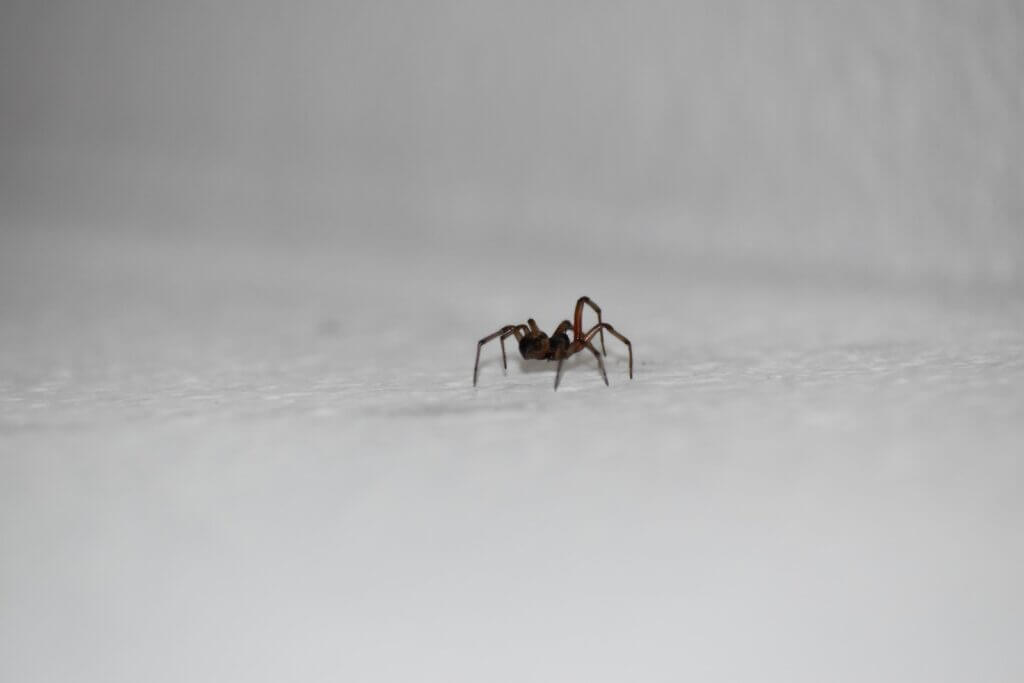Finding an unwelcome spider in your bed can be an unsettling experience. Not only is it disturbing to see those eight creepy legs skittering across your sheets, but you may also worry about the spider biting or crawling on you as you sleep.
Spiders in beds are actually quite common, with one study finding that 67% of homeowners have encountered spiders in their bedrooms. So if you’ve discovered an arachnid roommate, you’re definitely not alone.
While it may give you the heebie-jeebies, try not to panic. Most spiders found inside are harmless to humans and more interested in catching other insects than tangling with you. With the right techniques, you can remove and prevent spiders from taking up residence in your bed.
Here are 5 key steps to get rid of spiders in your bed for a more restful night’s sleep.
1. Safely Remove the Spider
If you spot a spider in your bed, resist the urge to smoosh it with a shoe or other object. This can leave spider guts and bodily fluids that you’ll just have to clean up later.
Instead, follow these tips for safe spider removal:
- Use an empty cup or bowl gently placed over the spider to trap it inside. Slide a piece of cardboard under the rim to completely enclose it.
- You can also use a thick magazine rolled up to lightly tap the spider into a container.
- Scoop or sweep the contained spider into a dustpan using gentle motions to avoid squishing it.
- Release the unharmed spider outside away from your home.
Never touch spiders directly with your bare hands, as some species can bite. Trapping spiders humanely prevents spider fluids from getting on your bedding while allowing their safe relocation.
2. Wash All Bedding
After removing the interloping spider, strip the bedding and wash it thoroughly in hot water. This eliminates any stray spider hairs, feces or bacteria left behind.
Use detergent and opt for the highest heat settings items can tolerate. For added protection, add 1/2 cup of bleach or vinegar to the wash cycle.
For comforters or blankets that can’t be washed, have them professionally dry cleaned. Mattresses should be vacuumed thoroughly including crevices and sides.
Washing and disinfecting the bed removes traces of spiders for hygienic sleep.
3. Eliminate Spider Access
To prevent future unwanted spider visitors, you’ll need to proactively block access to your bed.
- Caulk and seal any cracks along baseboards, around windows, or in foundations where spiders may enter.
- Install weather stripping around doors and windows to close gaps.
- Use screens on any windows left open for ventilation.
- Keep beds pulled away from walls and windows spiders could crawl through. Don’t let bedding drape to the floor.
- Remove clutter and storage around the bed that spiders could hide behind.
Sealing off spider access points fortifies your bed’s defenses against invasion.
4. Make Your Bedroom Less Appealing
While sealing cracks shuts out spiders, you can further discourage them by making your bedroom less hospitable:
- Keep humidity below 50% to deter moisture-loving species. Use a dehumidifier if necessary.
- Vacuum and dust frequently to remove food sources like dust mites.
- Don’t allow clutter or piles of laundry spiders can hide in.
- Switch off lights at night since illumination attracts insects for spiders to eat.
- Remove water sources by fixing any plumbing leaks and keeping drinks covered.
An clean, dry bedroom with limited food options convinces spiders to look for better lodgings.
5. Employ Pest Control Measures
For serious spider issues, pest control treatment can clear them out and provide ongoing prevention:
- Apply diatomaceous earth along baseboards and window sills. The powdery crystalline substance deters spiders with microscopic cuts.
- Install UV blacklights which attract bugs for spiders to catch. Then empty out traps regularly before they accumulate.
- Fumigate with targeted chemical treatments for spiders. Only use EPA-approved products applied by licensed professionals.
- Release natural spider predators like house centipedes or spiders eating wasps to control populations.
Leveraging professional pest control gives you backup firepower against stubborn spider infestations.
Sleep Tight Spider-Free
Waking up to spiders in your bed can be quite startling, but you can reclaim peaceful rest with these tips. Safely capturing and removing invaders, washing bedding, sealing access points, and employing deterrents will help evict spiders and prevent new ones from sneaking in.
With some diligence, you can rest assured knowing your bed is a spider-free sanctuary. No longer will you have to worry about uninvited arachnids crawling under the covers. Just make sure to thoroughly check mattresses and linens when staying in hotels or other beds outside your home.




